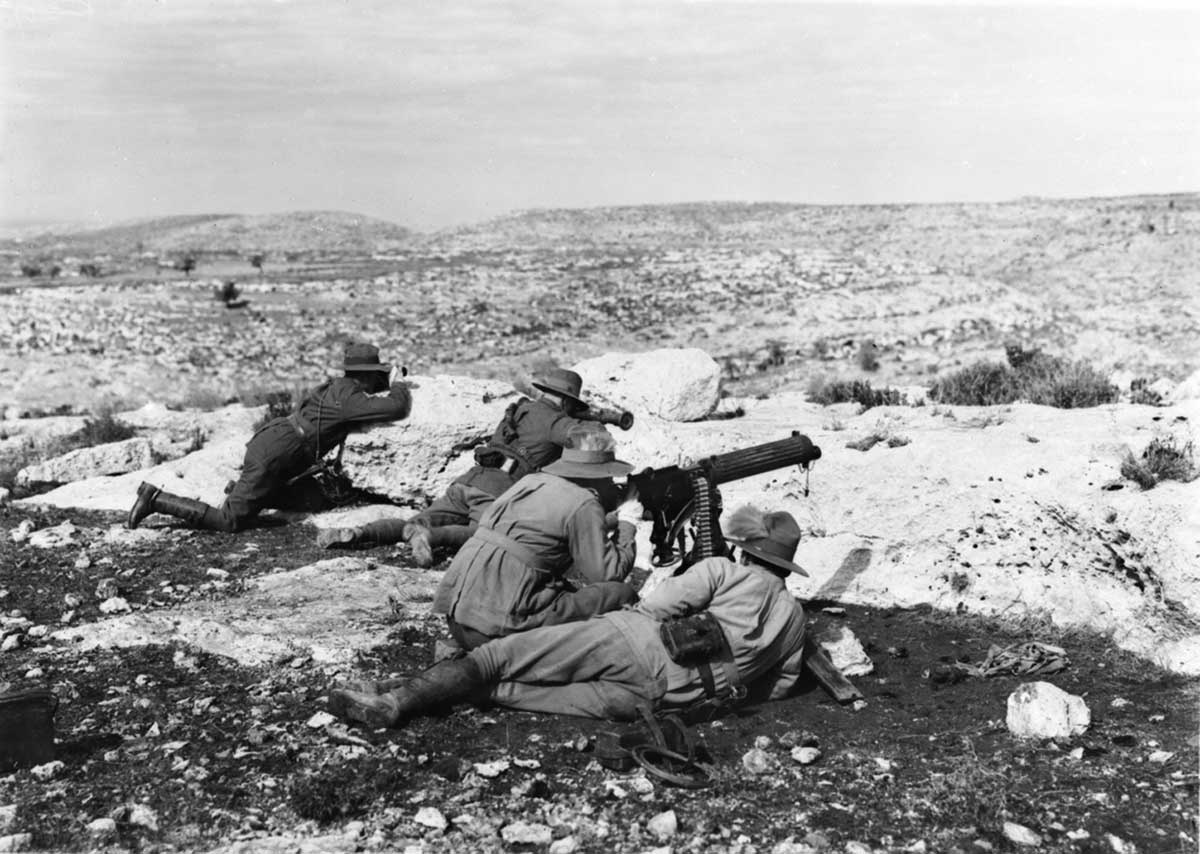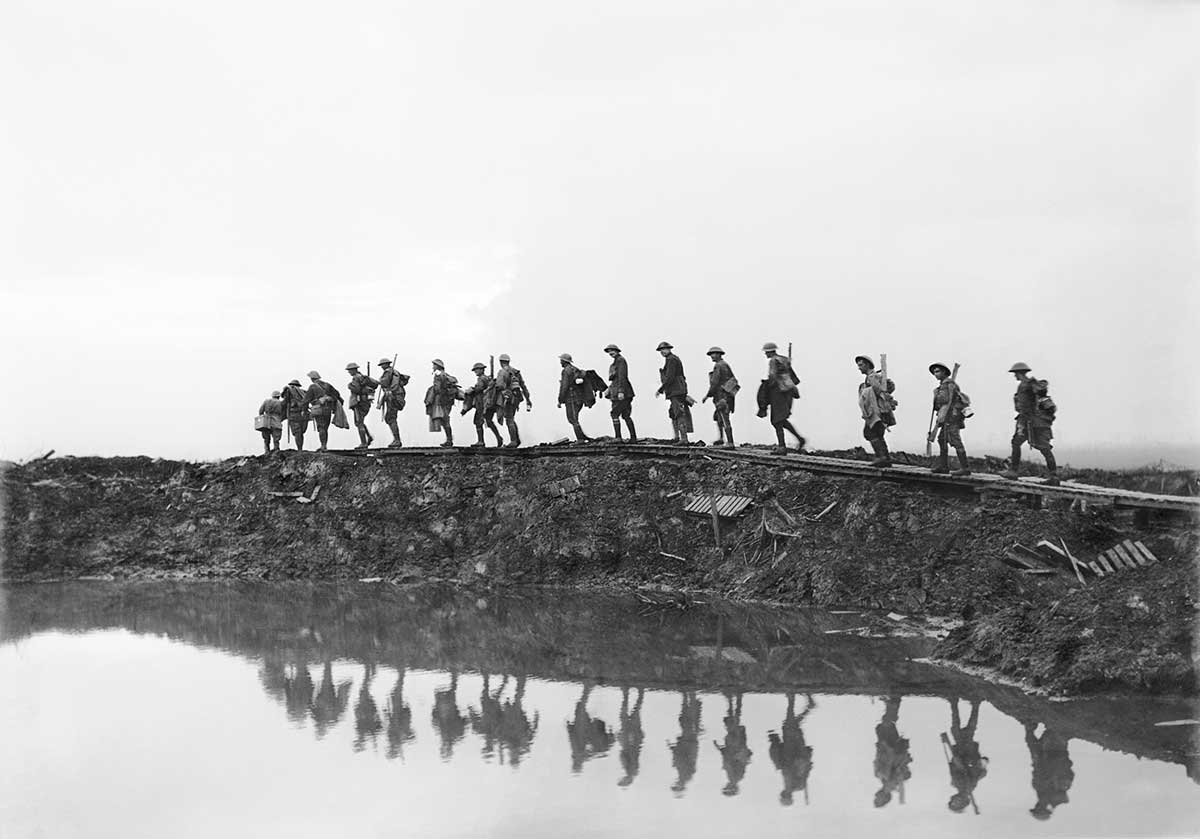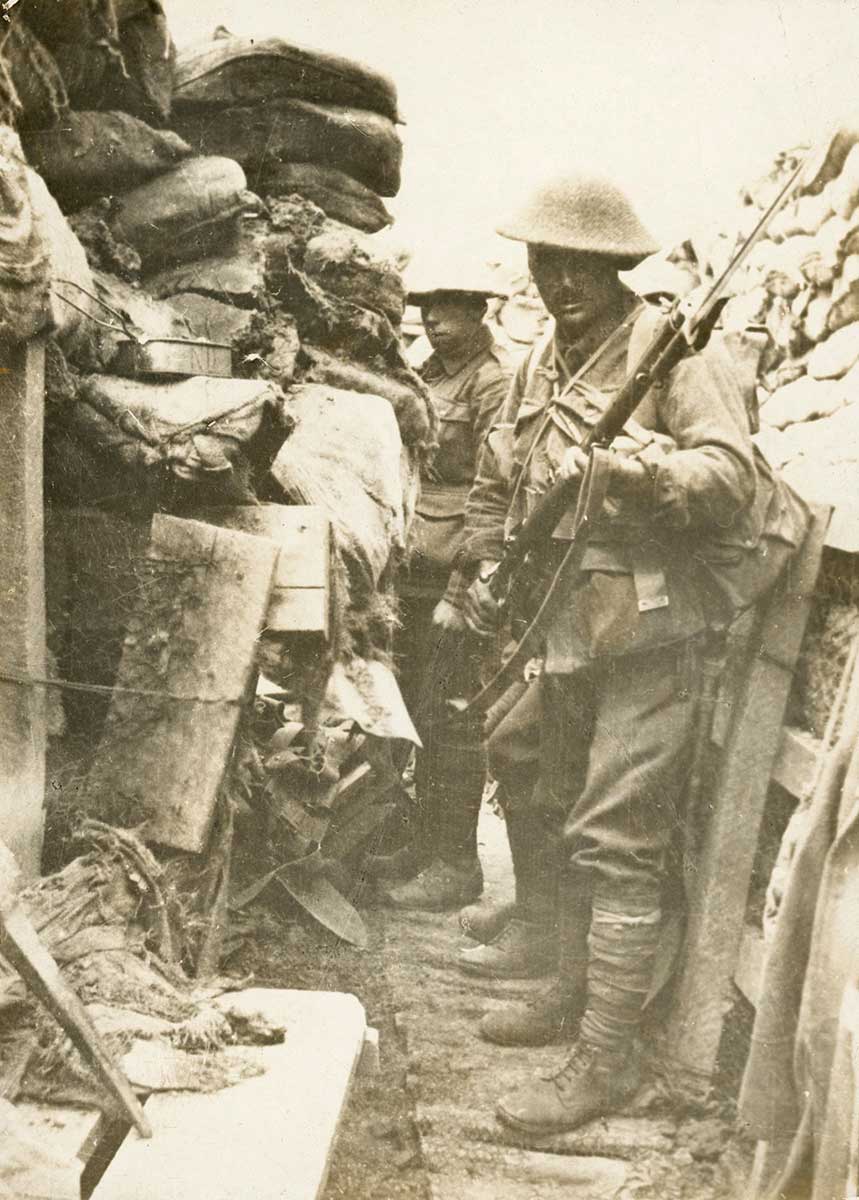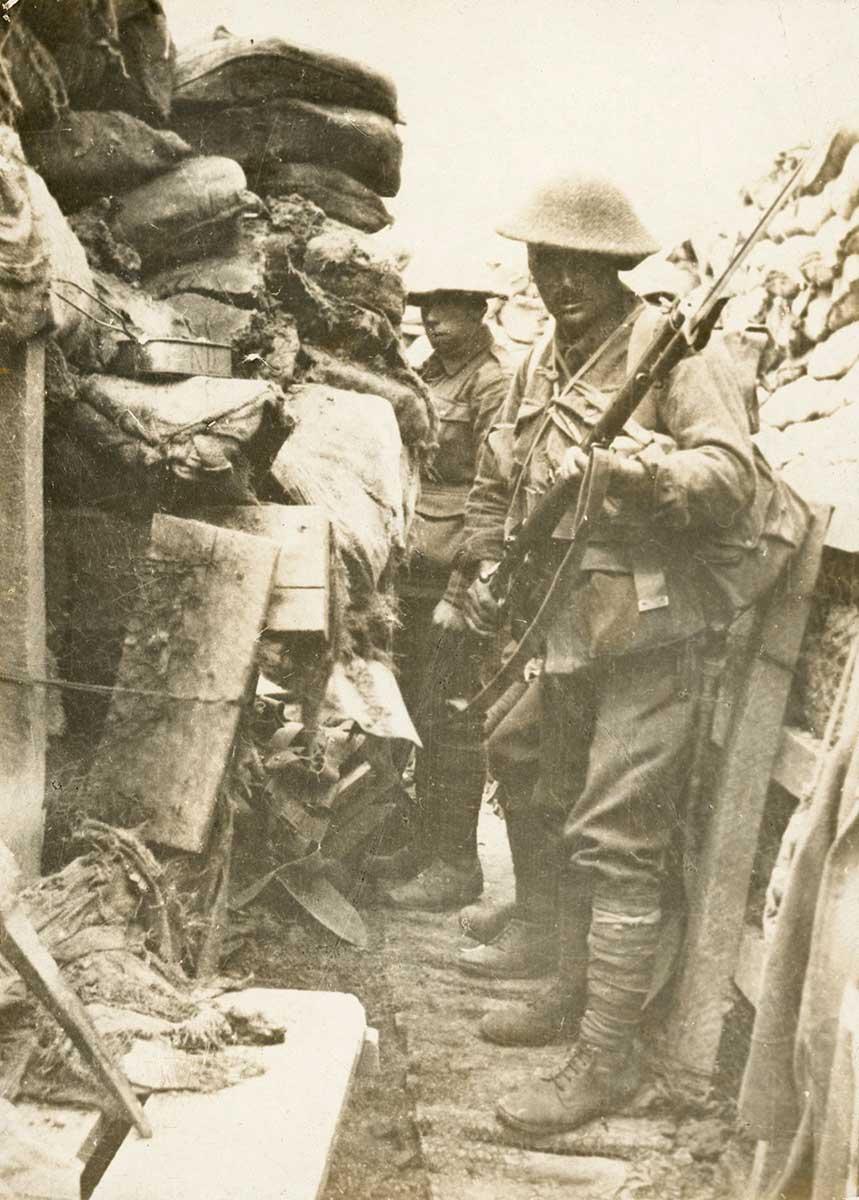Learning module:
War correspondents
War correspondents
14. The places we laid down our lives

You make friends with Jacob Smith on deck one day, an elderly newspaper reporter on his way home to Britain. He has been following the war closely.
‘It’s a nasty business, general war. Can’t say the world has ever seen anything like it.’
You mention that you want to write a story about where Australians are fighting in the war.
‘Easy, I’ve got a knack for remembering stuff like that and I’ve been following where you Aussies have been stationed, what with my daughter marrying one of you! She’s not alone — hundreds of Australian servicemen have found wives for themselves in Britain.
‘You see, I guess you could put it simply and say there were five main fronts where Australians participated directly in the war:
- Gallipoli: Yes, that well-known, failed attempt to knock Turkey out of the war, from April 1915 to December 1915.
- The Middle East: you fought with your New Zealand comrades and the British, Indian and Arab troops in Western Egypt. Other local Arab soldiers, supported by Germans and Turks, were the enemy on that one. The main fighting ended there in 1917, though that part of the world is still troubled by Arab nationalists. You also fought against the Turks in Palestine from 1916 to 1918. The campaign was often fought on horseback, like the famous charge at Beersheba that opened the way to Gaza and then Jerusalem. Really hot there, extreme conditions.
- At sea: The Royal Australian Navy was under command of us Brits (the Royal Navy). Only had one important win — you sunk the German ship SMS Emden in the middle of nowhere, west of Indonesia to be precise. That was right at the start of the war in November 1914. And in the Dardanelles one of your submarines managed to break through the defences. The commander sank it to avoid capture, but even so it was one of the few successes in the Gallipoli campaign.
- In the air: Let’s not forget about 3000 Aussie airmen who served in the Middle East and France — with what was later known as the Australian Flying Corps.
- In Europe: you fought mainly along the Western Front (which is a large battle line running from the French-German border up through Belgium to the English Channel). That’s by far where most of the action (and death, sorry old sport) happened for Australian troops.’
He pauses for breath, taking a big swig of his coffee.

‘In all, the numbers tell a tale: around 318,000 served overseas; 61,720 died. 155,000 were wounded; 4044 were prisoners of war (397 of them died while being held captive).’
You ask him if he could give you a more personal answer, rather than just stating facts.
‘Of course, old sport! Or should I say, young sport!’
He looks out to sea, deep in thought.
‘The Aussies were first sent to Gallipoli, bloody awful campaign. A right stuff-up. After evacuation, they were sent to Egypt, where the Australian Imperial Force (AIF) increased in number. By early 1916 they were sent to France, where they fought in some of the big battles on the Western Front. That’s where Australians saw their main action and the most casualties. I know you Aussies go on about Gallipoli a lot but really, it was a sideshow. Fighting on the Western Front was always going to decide the fate of the war. The Light Horse stayed behind in the Middle East until the end of the war, carrying out the odd operation against Turks in that area. Protecting the Suez was vital and kept a lifeline open between Britain and her empire. That’s pretty much it.’
He pauses, then adds, ‘Ground soldiers were your main contribution to this war, but a few airmen saw action on the Western Front and the Middle East. A few of your navy boys carried out operations all over the show — Pacific Ocean, Atlantic Ocean, Indian Ocean, North Sea … A bit here and there. And we shouldn’t forget the nurses. Some served in Australian hospitals but many worked alongside British units as far away as India. Some were with the Australian Army Nursing Service but many worked with the Red Cross or joined regular British nursing services. And hundreds more Australians worked on the home front in Britain in one capacity or another. Did you know Australians volunteered for work in munitions factories? That work could be as dangerous as fighting on the front line.
‘Europe’s going to be in a right mess after all this ends, old sport! I had a mind to stay on in Australia, but am looking forward to getting back to my family.’
You thank him for his time.
Your task
You write up what you’ve learned as an article. You have thought of how you can help your friend Emma Pratt back in Melbourne. She wants to produce a large research book on the war. She asked for your help on your trip to Europe before you got on the boat. After everything she’s done for you, you want to help.
This research task is about questioning. You want to develop the skill of recognising questions that help answer an overall question. Emma left you a note explaining the process:
Questioning is an important skill. It is only when you ask an interesting question that you start finding out interesting things. Sometimes questions are too big to answer in one go though. ‘What colour is the AIF uniform?’ Easy question — that can be answered without having to ask other questions. But a question like ‘How did Australia raise the money to pay for its war effort?’ That is another matter. It is an open question and we would need to ask other questions to answer that overall question.
For example if this was the overall question:
How did the First World War start?
Here are three questions that would help answer that question:
- Who were the main participants in the war?
- What actions immediately preceded countries declaring war?
- What grievances did the main European powers have against each other in 1910?
Now your turn.
Here is the overall question:
Where did Australians fight in the First World War?
Drag and drop the three sub-questions below that help answer the overall question.
You write all this into your notebook.
After several weeks at sea you arrive at Southampton, a port city in southern England. As you are waiting for your luggage to be taken off the ship, you fall into conversation with a shaken-looking middle-aged man. He is a veteran of some of the worst battles of the war and is being invalided back to Australia. You know he will have invaluable experience about what it is like for soldiers at the front. Go to 15.







